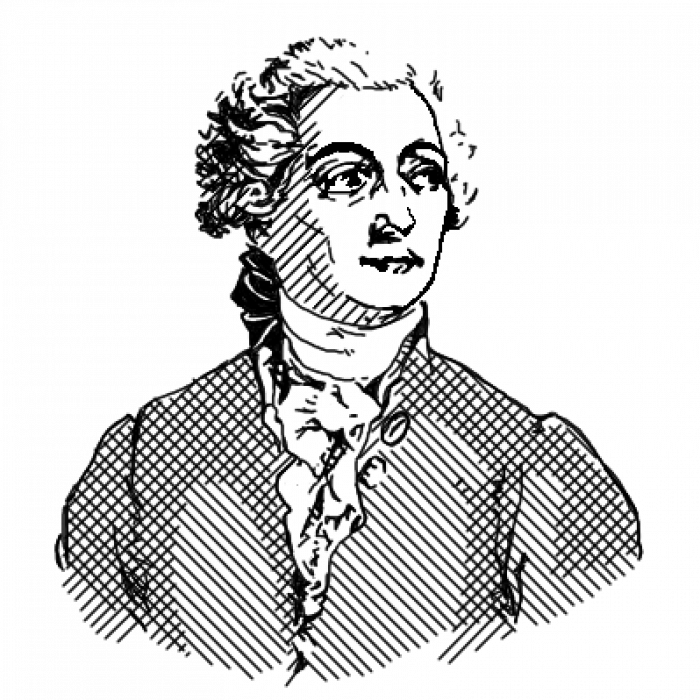
Antoine-Laurent de Lavoisier (also Antoine Lavoisier; 26 August 1743 – 8 May 1794) was a French nobleman and chemist.
He had a large influence on both the history of chemistry and the history of biology.
He is widely considered in popular literature as the "father of modern chemistry".
It is generally accepted that Lavoisier's great accomplishments in chemistry largely stem from his changing the science from a qualitative to a quantitative one.
Lavoisier is most noted for his discovery of the role oxygen plays in combustion. He recognized and named oxygen (1778) and hydrogen (1783) and opposed the phlogiston theory.
Lavoisier helped construct the metric system, wrote the first extensive list of elements, and helped to reform chemical nomenclature.
He predicted the existence of silicon (1787) and was also the first to establish that sulfur was an element (1777) rather than a compound.
He discovered that, although matter may change its form or shape, its mass always remains the same.
Lavoisier was a powerful member of a number of aristocratic councils, and an administrator of the Ferme générale.
Antoine-Laurent Lavoisier was born to a wealthy family of the nobility in Paris on 26 August 1743.
Lavoisier began his schooling at the Collège des Quatre-Nations, University of Paris (also known as the Collège Mazarin) in Paris in 1754 at the age of 11.
In his last two years (1760–1761) at the school, his scientific interests were aroused, and he studied chemistry, botany, astronomy, and mathematics.
At the age of 26, around the time he was elected to the Academy of Sciences, Lavoisier bought a share in the Ferme générale, a tax farming financial company.
In 1771 at age 28, he married Marie-Anne Pierrette Paulze, the 13-year-old daughter of a senior member of the Ferme générale.
During late 1772 Lavoisier turned his attention to the phenomenon of combustion, the topic on which he was to make his most significant contribution to science.
During his lifetime, Lavoisier was awarded a gold medal by the King of France for his work on urban street lighting (1766), and was appointed to the French Academy of Sciences (1768).
A number of Lavoisier Medals have been named and given in Lavoisier's honour, by organizations including the Société chimique de France, the International Society for Biological Calorimetry, and the DuPont company.
Source: Link

1564 - 1616

1803 – 1882

1854 – 1900

1942 – 2016

1928 – 2014

1835 – 1910

1869 – 1948

1884 – 1962
1898 – 1963

1929 – 1993

1879 – 1955

1809 – 1865

1807 – 1870

1800 – 1859

1795 – 1821

1755 – 1793

1984 -

1989 – 2011

1943 – 2001

1815 – 1902

1929 – 1994

1767 – 1848
